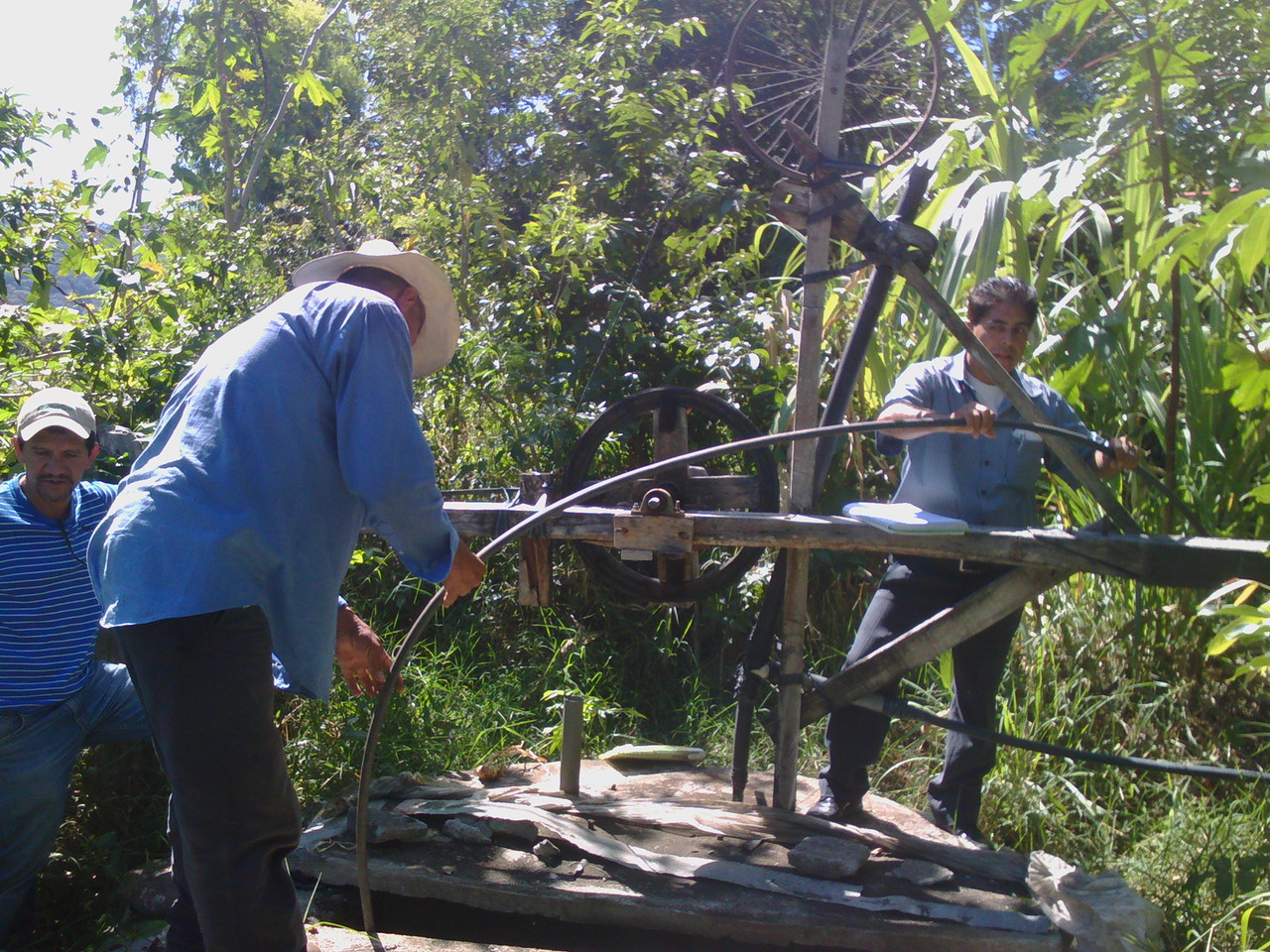 In June 2016, GRID Alternatives’ International Program volunteers installed a solar-powered drip irrigation system on the small farm of Juan Pablo Herrera and Maria Helena Molina in Jinotega, Nicaragua. The system consists of a solar-powered water pump that moves water from a water source into a tank, and then gravity kicks in to move the water through the tubes to the plants in the field drip by drip.
In June 2016, GRID Alternatives’ International Program volunteers installed a solar-powered drip irrigation system on the small farm of Juan Pablo Herrera and Maria Helena Molina in Jinotega, Nicaragua. The system consists of a solar-powered water pump that moves water from a water source into a tank, and then gravity kicks in to move the water through the tubes to the plants in the field drip by drip.
Juan Pablo Herrera and Maria Helena Molina, are small rural farmers living in the community of Colon, located in the department of Jinotega, Nicaragua. Juan Pablo and Helena grow onions, corn, beans and passion fruit on their 1.2 acre farm. They have a well on their property reinforced by concrete which makes it a secure and ideal for using a submersible pump that is powered by the solar array.
Juan Pablo and Helena have been worked with a local organization called AVODEC (Association of Volunteers for Community Development) for several years, which has supported them by contributing $1,000 towards their drip irrigation system.
GRID volunteers worked alongside Juan Pablo and Helena to install solar panels and the water pump, as well as installing the entire drip irrigation system- including preparing the water storage tank, digging trenches for the irrigation tubes, wiring the load controller, and mounting the PV modules. The drip irrigation system provides water for fruits and vegetable crops to this small family-run farm, improving their livelihood by increasing crop production, saving time, and increasing income.
Small farmers in Nicaragua face a number of challenges. Many farmers rely on diesel-powered or gasoline-powered motors to pump water to their crops, which is very costly, polluting, and time consuming for the farmer to travel to obtain fuel. Those who cannot afford a generator, irrigate their crops by hauling water in buckets by hand from a well or nearby river. In both cases, watering crops in the dry season is difficult due to the hot climate and lack of water accessibility, limiting the farmer’s annual yield.
Connecting to grid electricity is not an option for most farmers either because the electric grid is not nearby or because the electric company charges farmers a higher commercial rate if the electricity is used for irrigation.
By using solar-powered drip irrigation systems, farmers can save money, use water more efficiently, increase crop yields, reduce local pollution, add more locally produce to the market, improve the quality of their lives by having more disposable income to send their children to school, make improvements to their home, and get their crops to the local market faster.
While in the rural community, the group participated in cultural activities to better understand the “campesino” way of life. Before and after the solar project, the group traveled around the country to explore Nicaragua's scenery and experience various aspects of Nicaraguan food, music and culture.
To see pictures from this project, click here.

